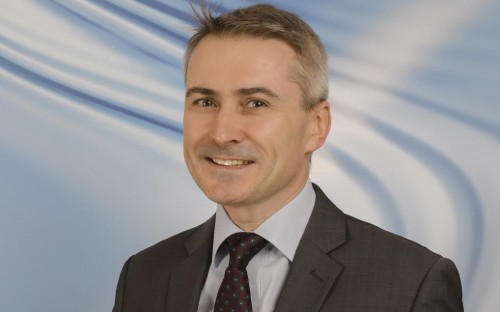With this in mind, Cranfield School of Management’s full-time MBA Energy degree aims to train entrepreneurially-minded leaders to drive a transition in the sector towards clean and renewable energy.
“Clean technology and renewable energy is big business; already solar and onshore wind are cost competitive and these prices continue to fall,” says Professor Feargal Brennan, director of energy at Cranfield University.
“Renewable energy is rapidly becoming the energy of modern competitive economies; those who fail to recognize this stand to lose significant market share and competitive edge,” he continues.
“Cranfield is uniquely connected to the energy sector world-wide in both the developed and developing world, giving students a broad perspective of the many opportunities associated with this rapidly growing industry.”
Cranfield’s MBA Energy program is designed for professionals with at least three years' work experience and a keen interest or background in the energy sector.
During the program, students gain both technical and general management skills, with access to industrial-scale, cutting-edge facilities as well as the school’s renowned management training and world-leading energy research faculty. Last year’s class was made up of 57 students representing 18 different nationalities.
“Cranfield offers management with technology, a combination that is so often missing and without which no serious understanding of technological opportunities can be assessed,” says Feargal.
“The conventional sector tends to be lacking an entrepreneurial culture. It is this creative and entrepreneurial dimension which will drive the transition to clean and renewable energy.”
For Stephanie Hussels, Cranfield’s MBA program director, the aim is to promote innovative thinking and work towards a sustainable future. This mind-set extends across the school’s degree programs.
“Any program that fails to put the triple goal of social development, environmental protection and economic development center-stage will fail to equip tomorrow’s leaders with not just the skills, but also the values that are needed to succeed in the business environment of the future,” she says.
“Without a long-term environmental and social perspective, many companies simply will not survive. At Cranfield, ideas around sustainability are built-in rather than bolted-on. You’re as likely to encounter them in finance, strategy or project management modules as in standalone energy modules.”
Despite Donald Trump’s Paris climate accord snub, Stephanie is positive about the future: “The President may have officially withdrawn the US from the Paris climate accord, but different voices are actually leading the debate on this regardless.
“Individual states and major corporations have decided to press on with their investment in and commitment to policies and measures to combat climate change irrespective of presidential decisions.”
Feargal agrees: “As renewable energy becomes commercially compelling it is unlikely that the USA’s absence will slow global implementation of renewable energy and clean technologies. Local public opinion along with market forces are in my view likely to prevail.
“Opportunities in the energy sector are global,” he continues. “This is a sector that demands creative and innovative financing and investment models just as much as clever technology and the potential rewards to those who get it right are enormous.”
RECAPTHA :
3e
ec
c4
9d







